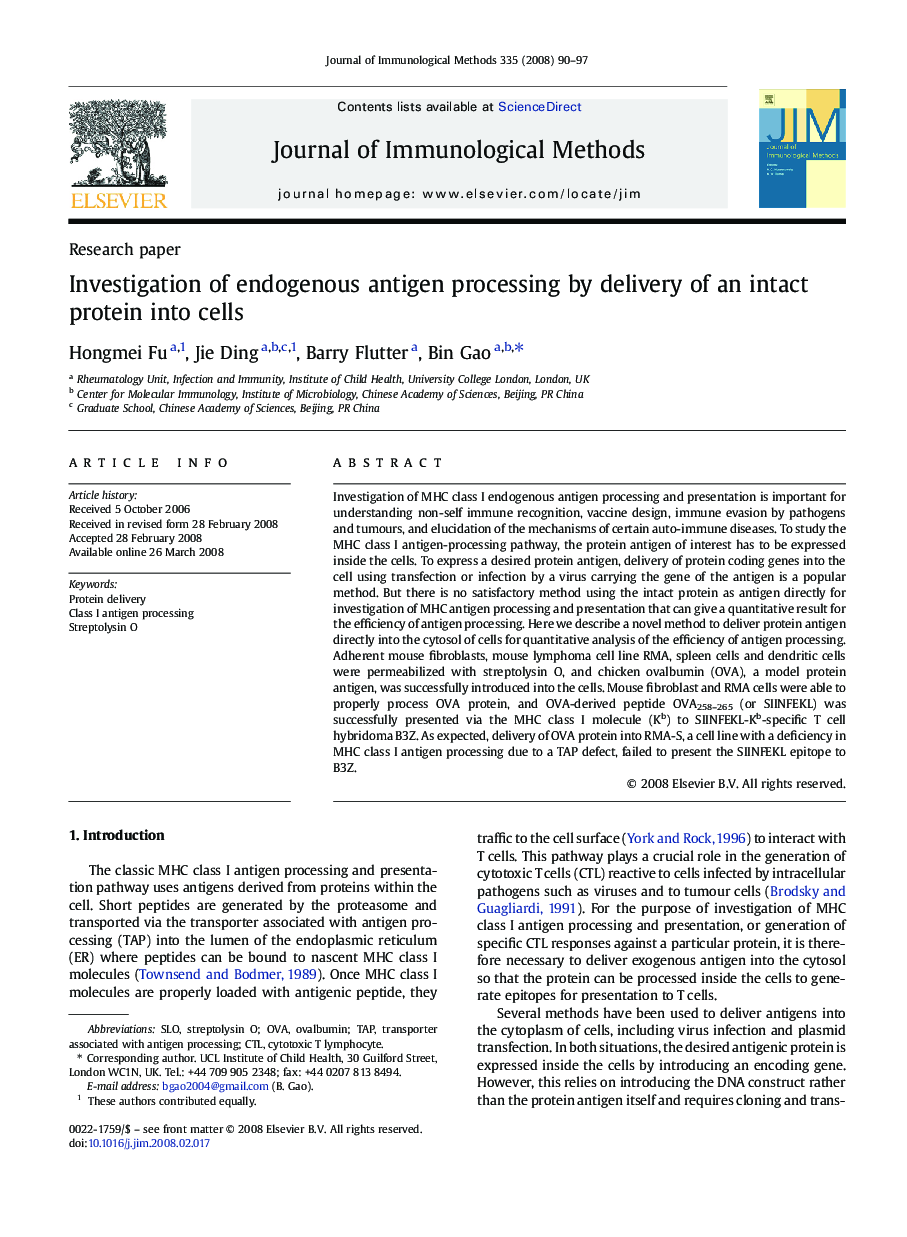| Article ID | Journal | Published Year | Pages | File Type |
|---|---|---|---|---|
| 2088990 | Journal of Immunological Methods | 2008 | 8 Pages |
Investigation of MHC class I endogenous antigen processing and presentation is important for understanding non-self immune recognition, vaccine design, immune evasion by pathogens and tumours, and elucidation of the mechanisms of certain auto-immune diseases. To study the MHC class I antigen-processing pathway, the protein antigen of interest has to be expressed inside the cells. To express a desired protein antigen, delivery of protein coding genes into the cell using transfection or infection by a virus carrying the gene of the antigen is a popular method. But there is no satisfactory method using the intact protein as antigen directly for investigation of MHC antigen processing and presentation that can give a quantitative result for the efficiency of antigen processing. Here we describe a novel method to deliver protein antigen directly into the cytosol of cells for quantitative analysis of the efficiency of antigen processing. Adherent mouse fibroblasts, mouse lymphoma cell line RMA, spleen cells and dendritic cells were permeabilized with streptolysin O, and chicken ovalbumin (OVA), a model protein antigen, was successfully introduced into the cells. Mouse fibroblast and RMA cells were able to properly process OVA protein, and OVA-derived peptide OVA258–265 (or SIINFEKL) was successfully presented via the MHC class I molecule (Kb) to SIINFEKL-Kb-specific T cell hybridoma B3Z. As expected, delivery of OVA protein into RMA-S, a cell line with a deficiency in MHC class I antigen processing due to a TAP defect, failed to present the SIINFEKL epitope to B3Z.
